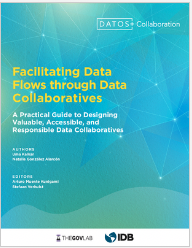SITRA Publication: “The European Union’s ambitious data strategy aims to establish the EU as a leader in a data-driven society by creating a single market for data while fully respecting European policies on privacy, data protection, and competition law. To achieve the strategy’s bold aims, Europe needs more practical business cases where data flows across the organisations.
Reliable data sharing requires new technical, governance and business solutions. Data spaces address these needs by providing soft infrastructure to enable trusted and easy data flows across organisational boundaries.
Striking the right balance between regulation and innovation will be critical to creating a supportive environment for data-sharing business cases to flourish. In this working paper, we take an in-depth look at the governance issues surrounding data sharing and data spaces.
Data sharing requires trust. Trust can be facilitated by effective governance, meaning the rules for data sharing. These rules come from different arenas. The European Commission is establishing new regulations related to data, and member states also have their laws and authorities that oversee data-sharing activities. Ultimately, data spaces need local rules to enable interoperability and foster trust between participants. The governance framework for data spaces is called a rulebook, which codifies legal, business, technical, and ethical rules for data sharing.
The extensive discussions and interviews with experts reveal confusion in the field. People developing data sharing in practice or otherwise involved in data governance issues struggle to know who does what and who decides what. Data spaces also struggle to create internal governance structures in line with the regulatory environment. The interviews conducted for this study indicate that coordination at the member state level could play a decisive role in coordinating the EU-level strategy with concrete local data space initiatives.
The root cause of many of the pain points we identify is the problem of gaps, duplication and overlapping of roles between the different actors at all levels. To address these challenges and cultivate effective governance, a holistic data governance framework is proposed. This framework combines the existing approach of rulebooks with a new tool called the rolebook, which serves as a register of roles and bodies involved in data sharing. The rolebook aims to increase clarity and empower stakeholders at all levels to understand the current data governance structures.
In conclusion, effective governance is crucial for the success of the EU data strategy and the development of data spaces. By implementing the proposed holistic data governance framework, the EU can promote trust, balanced regulation and innovation, and support the growth of data spaces across sectors…(More)”.

